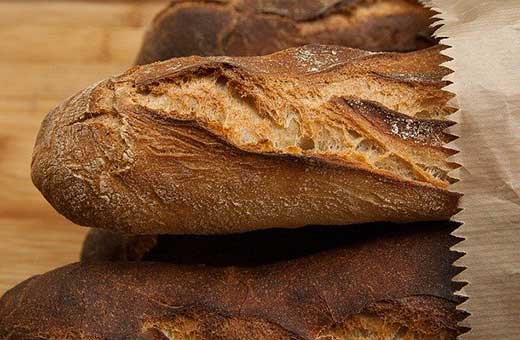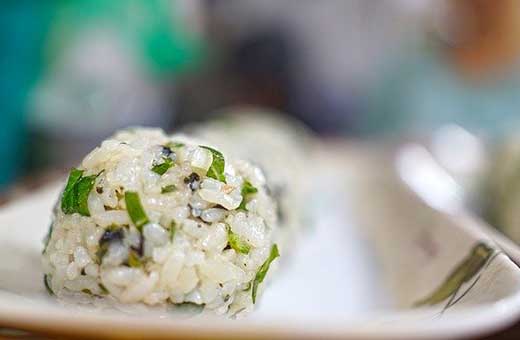Supermarkets are solitary creatures. At night, they remind me of ghosts. I’m cynical by nature, but I have never been more spiritual than in the half-light of evening, gazing at the backlit sign of a Family Mart. With canned coffee, potted fruit and instant ramen for days, a good afterlife is guaranteed.
I like to visit supermarkets when the day is done, and people can shop leisurely without the pull of work. I can enjoy the bright aisles at this time because I know the darkness is waiting to welcome me back into anonymity. I’m especially happy if it’s cold outside. I pull my coat tight around my body and bring my scarf over my nose, swinging a plastic bag on my fingers as I walk.
#
 I loved supermarkets before I loved much else. When I was young and my parents were still married, we drove to the South of France in the summer. Long nights were spent on long motorways, my brother and I sleeping intermittently while my mum and dad watched a whole country pass by. We stopped frequently: 8pm for a service station dinner, 11pm to use the toilet, 3am for coffee. I remember the coffee breaks in a series of stops and starts: the engine dying, bright lights behind closed eyes, a rush of cold air as my dad opened the car door. I’d wake at sunrise with glossy magazines on my lap in a language I didn’t understand.
I loved supermarkets before I loved much else. When I was young and my parents were still married, we drove to the South of France in the summer. Long nights were spent on long motorways, my brother and I sleeping intermittently while my mum and dad watched a whole country pass by. We stopped frequently: 8pm for a service station dinner, 11pm to use the toilet, 3am for coffee. I remember the coffee breaks in a series of stops and starts: the engine dying, bright lights behind closed eyes, a rush of cold air as my dad opened the car door. I’d wake at sunrise with glossy magazines on my lap in a language I didn’t understand.
We stayed in a little town called Sanary-sur-Mer, just under an hour from Marseille. There was a large Carrefour a short drive away, past vineyards, fields of grass and heat-drenched motorways. We ate lunch on the shop floor, shamelessly raiding plates of cheese, meat and fresh fruit. The people behind the bread counter tore up warm baguettes for hungry shoppers to try, and we were always hungry. We worked diligently, conjuring whole sandwiches out of nothing.
#
I took a job in the New Territories, a comparatively rural part of Hong Kong, in 2017. For the first few months, the only thing that could bring me back to myself was bubble tea—cold and sweet if I was at work, warm and milky if I wasn’t. It couldn’t take me home, but it could remind me why I left.
I was living in the Mong Kok district of Kowloon, the busiest part of the city. The nearest supermarket was a chain called Wellcome. The entry was at street level, but the supermarket was underground. There was no kitchen in my flat, so I had little need for uncooked food. I’d shop for imported tea and long-life milk, paying twice as much as I did at home. Then, I’d dissolve back into the bustling street, neon lights bright above me, and surface again at the mouth of my flat. It was weeks before I learned to buy fruit from the wet market. The skin needed to be scrubbed hard or removed altogether, but the persimmons were plump and sweet.
Around this time, I also discovered pineapple buns, which I ate every day for a year. It was an unhealthy habit, especially since they’re often served fresh from the oven with a square of butter melting in the middle. They make me think of mornings without breakfast, rushing to work and then stopping because I could smell baking bread. The women in the shop knew me and never minded if I didn’t have the correct change.
My favourite thing to eat in Hong Kong was mango mochi. Thick slices of fresh mango are wrapped in glutinous rice and dusted with flour. The rice cake is chewy, and the mango is soft and fresh. I made frequent trips to the stall selling them, through the Ladies Market and out onto a street of restaurants and shops. I’d buy two or three at a time, eating them slowly as I wandered home with flour on my cheeks.
#
The morning after I returned from Hong Kong, my dad took me to Sainsbury’s while the sun was coming up. I had been away for a year. The streets I’d imagined in unbearable detail were finally beneath my feet, and the sky, chequered with telephone wires, was pale blue. We drank strong coffee, and I thought that if I fell asleep here, and woke up, and slept again, then I’d be happily living my life.
This supermarket, nestled behind East Grinstead train station, is an extension of my home. My family occupy it like a room in our house: my niece running uncontrollably, my sister chasing her past aisles of fruit, my dad fretting about feeding us properly. Before my brother became a vegetarian, he bought whole roast chickens wrapped in paper bags. I’ve been a vegetarian for years, but I still find it hard to resist the hot, salty smell.
#
Lapsang souchong tea is originally from the Fujian province of South-East China, high up in the Wuyi Mountains, but I buy it from Sainsbury’s. It’s sold in blue boxes decorated with pagodas, dragons and the phrase ‘smoky china tea’. The tea leaves, which are smoke-dried over pinewood fires, remind me of the campfires my brother and our friends used to build in the forest near our house. It was my friend, Sian, who introduced me to lapsang souchong. We talked leisurely as the kettle boiled, teabags waiting in empty cups.
I’ve now been back in the U.K. for twice the time I was gone. When I visit Hong Kong, I’ll find a café selling milk tea. I’ll touch the cup, which will be made of porcelain, and allow myself to return. I hope it will feel the same.
#
When I moved to Manchester in the summer of 2018, I waited patiently for the bus to take me to Asda. Early evenings were often spent this way: £4.20 in cash, a paper return ticket, loud music. The bus route took me down Oxford Road, past the two universities, and dropped me on the wrong side of a dual carriage way in Hulme. I crossed the road, walked through the car park and into the welcoming light.
I left my friend, Alice, a voice message on this walk one evening. The sun had set behind the supermarket and turned the sky pink. My Master’s course started the next day, and I was keen to end this stretch of loneliness and also anxious at the thought of no longer being alone. I told Alice that it was getting late, but I was going to walk around Asda. She replied that when she lived in Manchester, she used to do the same.
I met Bronte on the course I was waiting to start. Since then, we’ve visited many supermarkets together. There’s the little Tesco across the road from our university, which meant trips to the bubble tea shop next door (her order: lychee tea, apple bubbles, regular sugar, less ice). There’s the Spar on the corner of my street, where she took pictures of a pain aux raisin she found on the floor. And, of course, there’s the Asda in Hulme, where she danced aggressively to the Spice Girls, pasta swinging back and forth in her bottle-green basket. She always buys the same things: vegan chicken nuggets, chips, and the occasional vegetable.
#
 The best supermarket of my life is in the Shinjuku district of Tokyo, Japan. I was a student at a Japanese language school in the autumn of 2019, and there was a Family Mart around the corner. It was large and well-stocked, nestled between skyscrapers, with an upbeat jingle playing over the speakers. My classmates and I would join the lunchtime rush, determined to try as many things as possible. We were particularly fond of mitarashi dango, a chewy dumpling made from rice flour and covered in sweet soy sauce. Onigiri, which are small triangles of white rice, were my favourite. They are sold in a variety of flavours, but mine were always filled with shiitake mushrooms, assorted vegetables or sweet tofu.
The best supermarket of my life is in the Shinjuku district of Tokyo, Japan. I was a student at a Japanese language school in the autumn of 2019, and there was a Family Mart around the corner. It was large and well-stocked, nestled between skyscrapers, with an upbeat jingle playing over the speakers. My classmates and I would join the lunchtime rush, determined to try as many things as possible. We were particularly fond of mitarashi dango, a chewy dumpling made from rice flour and covered in sweet soy sauce. Onigiri, which are small triangles of white rice, were my favourite. They are sold in a variety of flavours, but mine were always filled with shiitake mushrooms, assorted vegetables or sweet tofu.
I bought egg steamed buns religiously from the Lawson underneath my flat. I ate one for breakfast every morning before I left for school, leaving the other tucked between the kettle and the wall. When I returned in the evening, it was waiting for me. I ate it in the bath, which was big enough to sit in if I tucked my legs to my chest.
***
Leonie Rowland lives in Manchester and has an MA in Gothic literature. Her most recent work has been published by Ad Hoc Fiction, Reflex Press and The Cabinet of Heed. Leonie’s debut prose chapbook, In Bed with Melon Bread, is forthcoming from Dreich in 2021. You can find her on Twitter @leonie_rowland or visit her website at http://leonierowland.com.
We’re a small group of volunteers, dedicated to writers, readers, and publishers. We’re also a paying market and do our best to champion all voices. When the nights are long and cold and the admin piles up, your help reminds us our work is appreciated. We’re hugely grateful for any support you can offer. Thank you.


